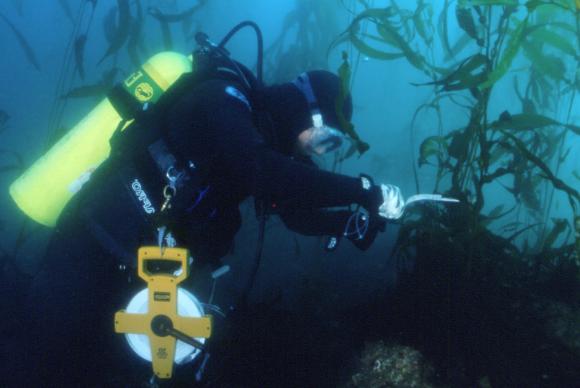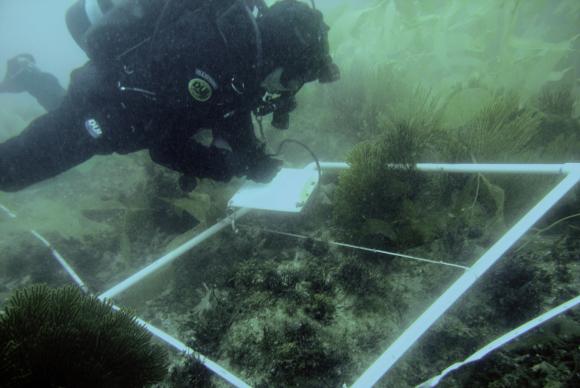The SONGS coastal development permit requires monitoring by independent scientists be done during the mitigation phase to: (1) determine whether the performance standards established for the mitigation reef are met, (2) determine, if necessary, the reasons why any performance standard has not been met, and (3) develop recommendations for appropriate remedial measures. The Permit also requires the scientists to develop a monitoring plan for the mitigation reef that describes the sampling methodology, analytical techniques and methods for measuring performance of the mitigation reef with respect to the performance standards identified in the SONGS coastal development permit.

UCSB diver measuring the size and density of giant kelp during annual performance monitoring. Photo Credit: Richard Herrmann

UCSB scientists developed a monitoring plan for the Wheeler North Reef that describes the process used to evaluate the success of the Wheeler North Reef in compensating for the loss of kelp forest habitat caused by SONGS, including: (1) descriptions of the specific sampling methods and analyses that will be used to evaluate each of the 13 performance standards, (2) the assignment of mitigation credit, (3) an explanation of how project data will be managed and archived for future use, and (4) a description of how the results from the monitoring program will be broadly disseminated. The monitoring plan is a living document that is updated as needed to optimize cost efficiency in maintaining the project’s objectives.